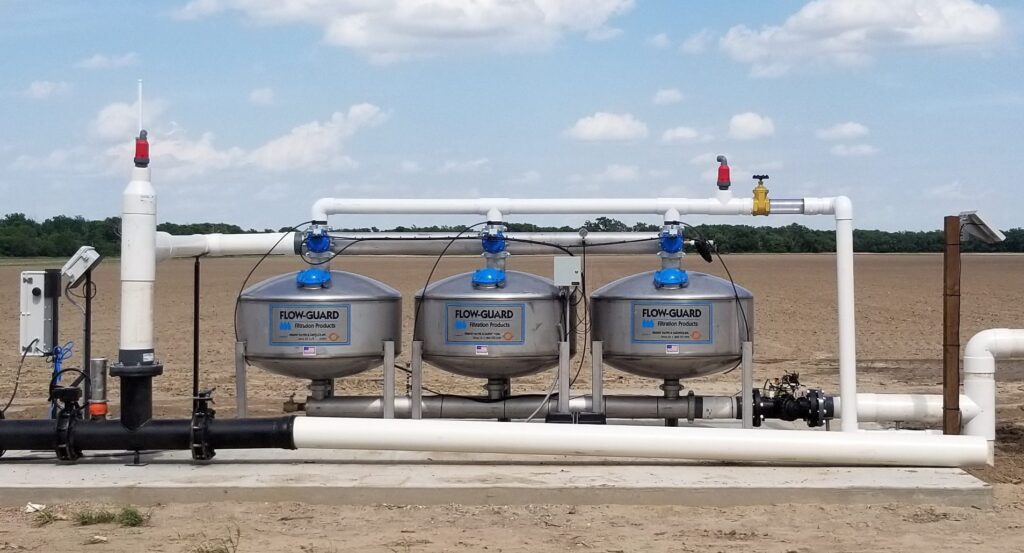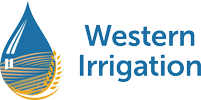Irrigated Corn: A Game-Changer for Small-Scale Farmers
Irrigated corn has been a game-changer for small-scale farmers worldwide, and it’s no surprise why. The ability to consistently grow healthy, high-yield crops has become increasingly important as global food demand continues to rise. With irrigation techniques allowing farmers to provide their crops with consistent and carefully measured amounts of water and nutrients, it’s no wonder that the yield and quality of corn crops have improved significantly. In this blog, we will delve deeper into the benefits of irrigated corn, explore the technology behind it, and learn how small-scale farmers are tackling the challenges of producing corn in a changing climate. So, buckle up and prepare to discover the wonders of irrigated corn!

What Irrigated Corn Is and Why It’s Important for Small-Scale Farmers
Irrigated corn is a popular agricultural practice that involves irrigating corn fields to yield greater agricultural productivity. Corn is a staple crop for millions of people around the world, including small-scale farmers who rely on it for food and income. With the right irrigation techniques, small-scale corn farmers can enhance crop growth, reduce soil deterioration, and provide food security for their families and communities.
One of the primary reasons why irrigated corn is important for small-scale farmers is its ability to improve crop yields. By providing precise and consistent watering, irrigation helps to ensure that corn crops grow to their full potential. Additionally, irrigated corn is less vulnerable to droughts and natural disasters, which means that farmers can plant with more confidence and reliability. This not only ensures food security for their families but can also result in surplus crops that can be sold for a profit.
Overall, irrigated corn is a crucial practice that supports small-scale farmers and promotes sustainable agriculture. By providing reliable irrigation, farmers can cultivate larger, healthier crops and contribute to their communities’ food security. Additionally, this practice helps to conserve water resources, reduce soil degradation, and promote sustainable and environmentally friendly agricultural practices. It is essential that small-scale farmers embrace irrigated corn as a way of achieving food security, sustainable agriculture, and economic growth.
The Benefits of Irrigated Corn
Irrigated corn offers a range of benefits for small-scale farmers, making it a game-changer in their agricultural practices. Some of the most notable advantages include:
- Increased crop yields: As mentioned earlier, irrigation provides consistent and precise watering, resulting in larger and healthier corn crops.
- Drought resistance: With unpredictable weather patterns becoming increasingly common due to climate change, irrigated corn provides small-scale farmers with a way to mitigate the effects of droughts and other natural disasters.
- Efficient use of resources: Irrigation systems allow for precise delivery of water and nutrients, reducing waste and promoting sustainable resource management.
- Crop diversity: By allowing farmers to grow crops in areas that were previously unsuitable, irrigation promotes crop diversity, ensuring food security and economic stability for small-scale farmers.
- Consistent income: With a reliable irrigation system, small-scale farmers can produce consistent, high-quality crops, providing them with a steady source of income.
By embracing irrigated corn, small-scale farmers can overcome the challenges posed by a changing climate and achieve greater food security, economic stability, and sustainable agriculture.

The Technology Behind Irrigated Corn
In the realm of modern agriculture, the technology behind irrigated corn stands as a beacon of innovation, reshaping the landscape for small-scale farmers. At its core, precision irrigation systems utilize cutting-edge sensors and data analytics to optimize water distribution, ensuring each cornstalk receives the precise amount of water it needs. This not only maximizes crop yield but also mitigates the impact of unpredictable weather patterns, offering a shield against the challenges posed by climate change.
One remarkable facet of the technology lies in its adaptability to varying terrains and farming scales. From advanced drip irrigation systems tailored for small plots to large-scale pivoting systems covering expansive fields, the technology caters to the diverse needs of farmers. Automated controls allow for remote monitoring, putting the power to manage water resources efficiently right at the fingertips of farmers. This level of technological integration not only conserves water but also empowers farmers with real-time insights, transforming traditional farming into a data-driven, sustainable endeavor.
Furthermore, the incorporation of smart farming practices, such as soil moisture sensors and weather forecasting tools, adds an extra layer of sophistication. These tools enable farmers to make informed decisions, optimizing irrigation schedules and resource utilization. The technology behind irrigated corn is not merely about water delivery; it’s a holistic approach that harmonizes the forces of nature with the precision of cutting-edge tools, fostering a new era of resilience and productivity for small-scale farmers.
How Irrigated Corn Makes Farmers More Adaptable to Changing and Unpredictable Weather Conditions
Adaptive Water Managemassent:
Irrigated corn introduces a game-changing flexibility for farmers grappling with unpredictable weather. Unlike traditional rain-dependent farming, irrigation allows farmers to take control of water distribution, adjusting it according to the ever-changing climate. Whether facing unanticipated dry spells or sudden downpours, farmers can adapt their irrigation schedules to ensure corn crops receive the optimal amount of water. This proactive approach minimizes the risks associated with erratic weather, fostering a resilient farming system that can pivot in response to nature’s unpredictability.
Timely Planting and Harvesting:
Irrigated corn cultivation offers farmers the invaluable ability to dictate planting and harvesting times, providing a crucial edge in the face of shifting weather patterns. Rather than waiting for rain, which may arrive late or not at all, farmers can strategically time their planting to align with more predictable weather forecasts. This adaptability ensures that corn crops mature under optimal conditions, mitigating the risks associated with climate fluctuations. The result is a more reliable and consistent harvest, even in the face of increasingly erratic weather events.
Consistent Yield Amidst Climate Uncertainty:
In the era of climate uncertainty, irrigated corn stands as a beacon of stability for farmers. By providing a reliable water source, irrigation shields crops from the adverse impacts of extreme weather, be it prolonged droughts or unexpected heavy rainfall. This consistency in water supply translates to a more reliable and predictable corn yield. As weather patterns become more erratic, the adaptability offered by irrigated corn becomes a linchpin for farmers seeking to secure their livelihoods in the face of an increasingly unpredictable climate.

Empowering Small-Scale Farmers: Implementation Tips for Corn Irrigation
Empowering small-scale farmers with the tools and knowledge to effectively irrigate their corn crops can lead to increased yields, reduced water waste, and improved overall farm productivity. Here are three implementation tips to help get started:
- Conduct a thorough site assessment: Before installing any irrigation system, it’s essential to understand the unique characteristics of the land. Factors such as soil type, topography, and rainfall patterns should be considered to determine the best irrigation method for the specific site. For example, a flat area with sandy soil may require a different irrigation strategy than a hilly area with clay soil.
- Choose the right equipment: There are various types of irrigation systems available, including irrigation sprinklers, drip irrigation, and furrow irrigation. Each has its own advantages and disadvantages, depending on the crop, soil type, and water availability. Small-scale farmers should select equipment that is affordable, easy to operate and maintain, and suitable for their specific needs.
- Implement efficient water management practices: Conserving water is crucial in areas where water resources are scarce. Small-scale farmers can implement practices such as rainwater harvesting, crop rotation, and mulching to reduce water usage while still maintaining healthy crops. Additionally, farmers should monitor water usage regularly and adjust irrigation schedules based on weather patterns and crop needs. By implementing these practices, small-scale farmers can optimize their corn yields while minimizing water waste.
Small-scale farmers can also benefit from seeking advice from local agricultural extension services or joining farmer cooperatives to learn best practices and share resources. By implementing these tips and seeking additional support, small-scale farmers can improve their corn yields while conserving water resources for future generations.
In the journey through the verdant landscapes of irrigated corn, we’ve unraveled a narrative of transformation for small-scale farmers. What began as a tale of challenges—rain-dependent uncertainties, climate change threats, and economic constraints—has evolved into a story of resilience and empowerment. Irrigated corn emerges not merely as a crop but as a game-changer, offering a lifeline to those who toil tirelessly to feed communities. The benefits of irrigated corn extend far beyond the rows of crops. It’s a paradigm shift, a revolutionary approach that empowers farmers to be architects of their destiny in the face of unpredictable weather patterns.
Through precise water management and the adoption of innovative irrigation techniques, small-scale farmers are no longer bound by the whims of the weather gods. Instead, they stand as stewards of their fields, capable of adapting and thriving in a changing climate. The potential of irrigated corn is immense, and it is within our collective power to ensure that every small-scale farmer has access to this transformative tool. By doing so, we sow the seeds of change, cultivating a future where fields, regardless of size, yield not just crops but also prosperity, resilience, and hope.
